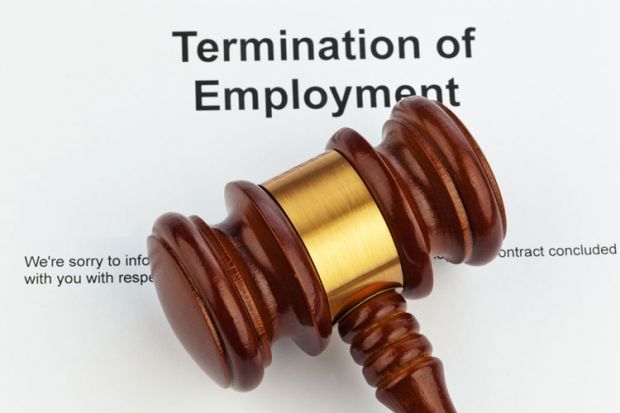The unfair dismissal of a senior neuroscientist for breaches of animal experimentation licences has been described by a prominent supporter as both “cock-up and conspiracy”.
Thelma Lovick, formerly reader in neuroscience at the University of Birmingham, was summarily dismissed for gross misconduct in June 2012. The university said she had permitted undergraduates to carry out animal procedures she knew were not permitted by the Home Office licence they were working under, and despite being instructed by authorities at the institution’s animal house to halt the experiments.
However, the judge at a Birmingham employment tribunal accepted Dr Lovick’s contention that she had not realised some of the procedures were not permitted by the licence. She also accepted that Dr Lovick had believed that another procedure was not in breach and that a Home Office inspector had eventually agreed with this assessment.
The judgment, reached in September and posted on the British Neuroscience Association’s website on 26 November, notes Dr Lovick’s 39 years of unblemished previous service and describes Birmingham’s evidence that she had deliberately breached the licence as “scanty and inadequately investigated”. It adds that the Home Office gave Dr Lovick only a minor reprimand, ruling that she “did not knowingly permit persons under [her] control to carry out unauthorised regulated procedures”.
The judge also observes that the authority of managers at Birmingham’s animal house to stop experiments for non-welfare reasons was disputed.
Birmingham is criticised for not interviewing expert witnesses nominated by Dr Lovick and for not taking into consideration a series of bereavements she suffered around the time of the incidents, which she said had “affected her judgment”.
A letter sent to Birmingham’s vice-chancellor David Eastwood by around 140 senior academics after Dr Lovick’s sacking called it “grossly disproportionate”.
One signatory, David Nutt, Edmond J. Safra professor of neuro-psychopharmacology at Imperial College London, told Times Higher Education that the sacking was “a mixture of cock-up and conspiracy”.
The cock-up arose from a “very poorly conducted” initial investigation and the complexity introduced by the animal house management’s insistence on handling all interaction with Home Office inspectors itself.
“They [tried] to cover up their mistakes by repeating the attack on Thelma and hoping her appeal would collapse under the pressure of taking them on,” he said.
He noted previous accusations of heavy-handed research management at Birmingham over which staff had threatened to strike earlier this year, and added that there “may also have been a prior university attitude or even intention to get rid of senior staff without paying redundancy”.
A university spokeswoman denied this, adding that it was “obviously disappointed” at the decision, “given the nature of the misconduct, which included the infringement of Home Office licences”. Birmingham “did not take the decision to dismiss lightly. It was reached after a detailed process…[but] we acknowledge the comments made by the tribunal and will be reviewing these internally.”
Dr Lovick, now an honorary senior research fellow at the University of Bristol, declined to comment on the case.





